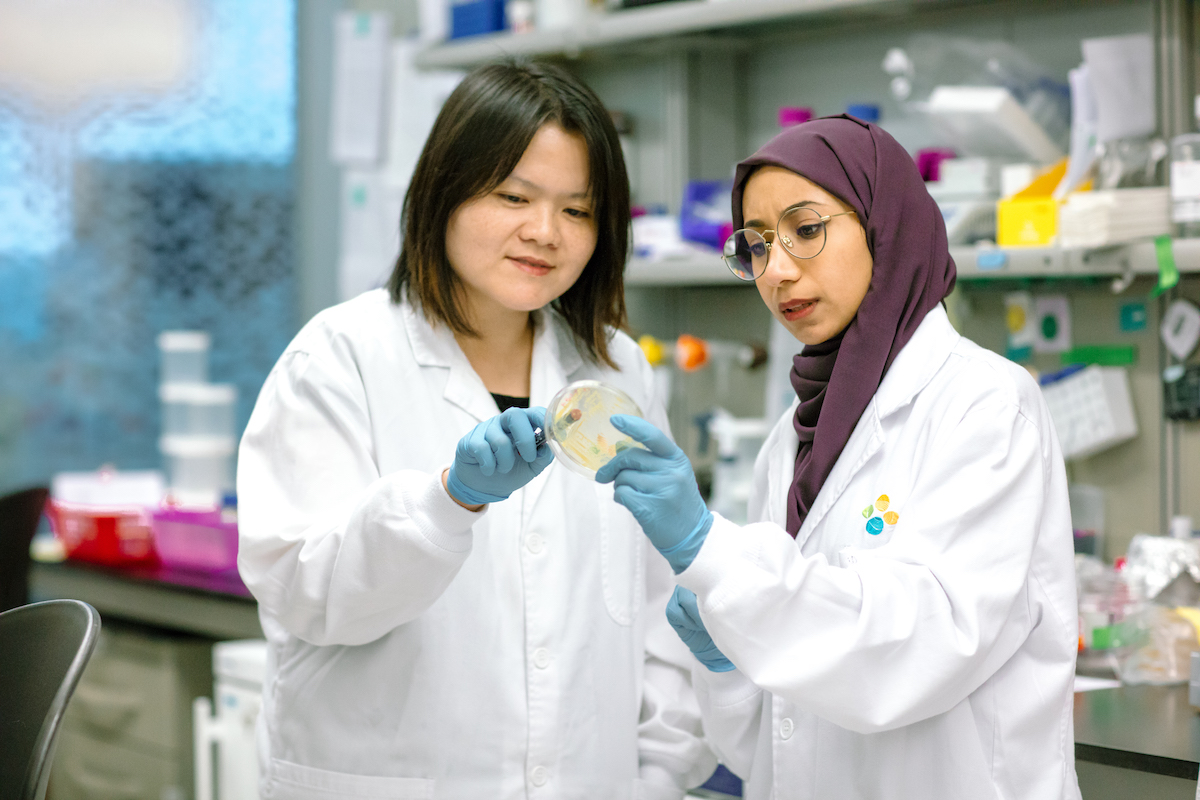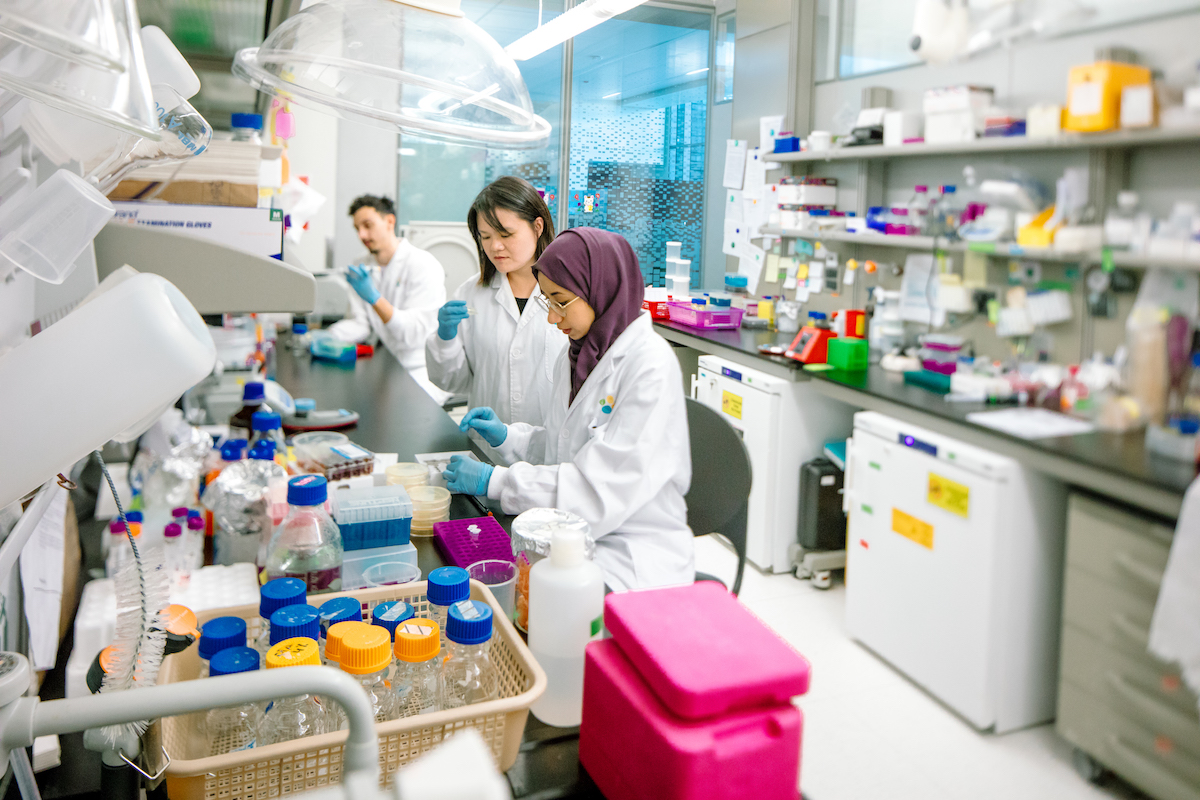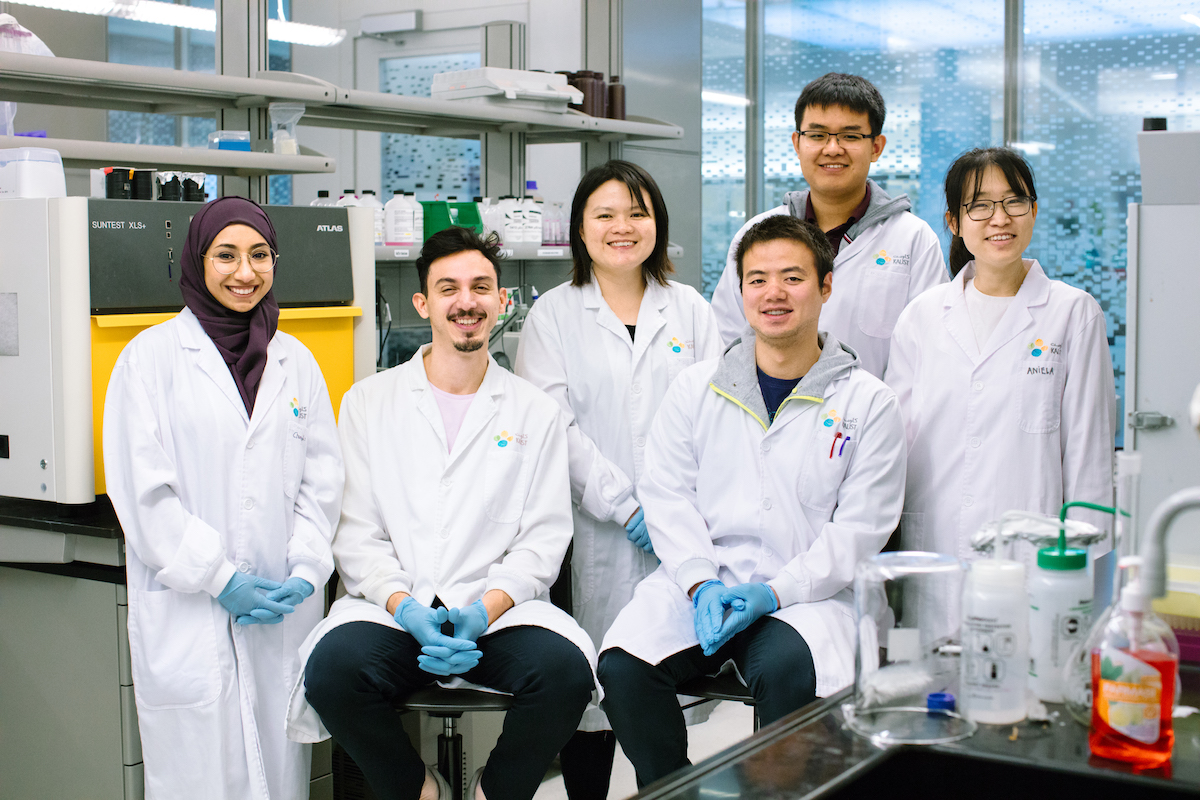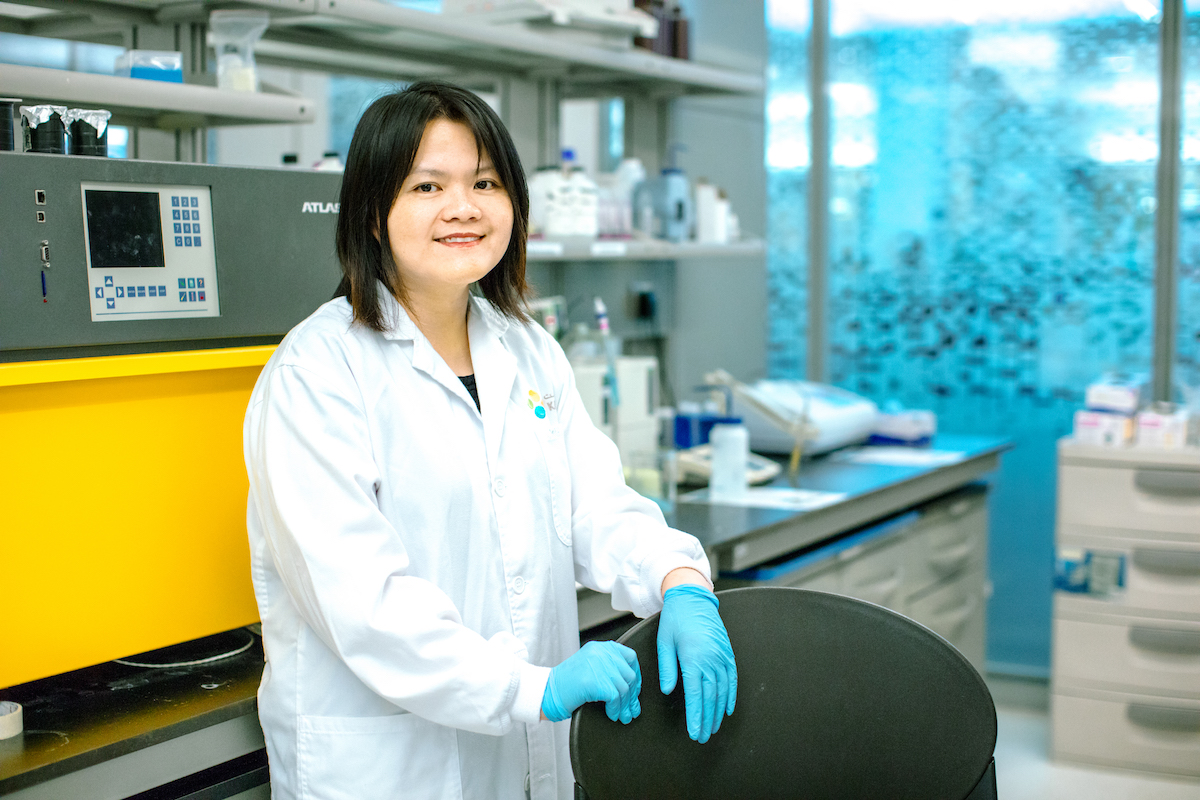Using molecular microbiology to fight water scarcity and feed the world

KAUST Associate Professor Peiying Hong (left) and her team were the first to show the use of ultraviolet sunlight and phages increases the susceptibility of an antibiotic-resistant bacterium towards sunlight disinfection alone. File photo.
-By Tanya Petersen, KAUST News
The growing resistance of some bacteria to antibiotics—also known as antimicrobial resistance—is an emerging and serious threat. The rate of discovering new antibiotics has slowed in the past few decades, making research into alternatives to disinfect antimicrobial bacteria crucial.
One already well-known alternative disinfectant to antibiotics is ultraviolet sunlight. It is often used, for example, in warmer climates to treat and disinfect bacteria in sewage and wastewater. However, there are some bacteria that are not only resistant to antibiotics but are also less susceptible to disinfection by sunlight, making them particularly dangerous to humans.
KAUST Associate Professor Peiying Hong and her team at the University's Environmental Microbial Safety and Biotechnology Lab recently made a breakthrough discovery in this area.
Hong and her team's research was the first to demonstrate the combined use of ultraviolet sunlight together with phages to increase the susceptibility of an antibiotic-resistant bacterium towards sunlight disinfection alone. Phages, viruses that infect bacteria, have been used in Russia and Central Europe for decades as an alternative to antibiotics against multidrug-resistant strains of many bacteria. Essentially, Hong and the research team used phages to break down a bacterium's resistance to UV disinfection.

In this file photo, Associate Professor Peiying Hong (center) works with former KAUST Ph.D. students David Mantilla (left) and Nada Aljassim (right) in her lab on campus. File photo.
In earlier research, Hong showed that sunlight was useful to inactivate a pathogenic and antibiotic-resistant E. coli strain—PI7—found in a local Saudi wastewater treatment plant. However, while the sunlight did disinfect the pathogenic E. coli, it did so at a slower rate than that observed in a commensal, or non-pathogenic, strain of E. coli.
"This suggested to us that possibly antibiotic-resistant and pathogenic bacterial strains are more resistant to sunlight disinfection. Our research at that time suggested that the antibiotic-resistant strain more actively defended itself from the onslaught of disinfection by sunlight," Hong explained. "However, on the flip side, we also observed that genes that help protect against phages were less active. This led us to consider using phage in combination with sunlight to kill the antibiotic-resistant bacterium."
While the breakthrough is no doubt exciting to medical research, Hong sees a different application for her work. Hong hails from Singapore, a country with few natural resources—including groundwater supplies. There, treated wastewater forms an important water supply source. Hong has always been interested in environmental conservation and particularly in water scarcity issues, which are some of the biggest conservation and development challenges of the 21st century.

KAUST Associate Professor Peiying Hong (third from left) noted '[i]t is immensely gratifying' to share her goal of providing solutions to water scarcity with her research team. File photo.
Being able to treat wastewater to be purer than groundwater—with guarantees that it doesn't contain any harmful non-disinfected bacteria like PI7—may be a game changer in global waste water treatment and may help to reduce the demand on non-renewable freshwater supplies.
"The public needs to be educated on the need to conserve our non-renewable groundwater resources, and one way to do so is to tap into our treated wastewater...[T]here is a lot of negative perception towards treated wastewater and therefore overall low acceptance rates for wastewater reuse in water-scarce countries," Hong said. "There are already technologies available that can remove and mitigate the risks associated with contaminants, and through further scientific research, we want to improve even further the technologies to minimize risks."
Making wastewater safe and getting the message across that it can and should be used as an alternative to non-renewable groundwater supplies may also help solve another of the century's biggest challenges—food security in world of 10 billion people on a planet facing the growing impacts of climate change.
Hong is now partnering with plant scientists and agricultural farmers to utilize their treated water for agricultural irrigation, expanding demonstration projects to show how safe the water is for producing food.

Hailing from Singapore, Associate Professor Peiying Hong is well aware of the issue of water scarcity and the problems it poses for the world in the 21st century.
"We are collaborating with colleagues in plant sciences to examine the impact on crop yield and plant health and, at the same time, coupling what we have learned about the emerging microbial contaminants and developing low-cost biocidal strategies to further enhance the safety of reuse water," she stated. "These biocidal strategies can also be expanded and be used in other water sources—for example, seawater. To better assess water quality, we are also developing tools to provide faster and more accurate water quality testing, which we believe is essential to better protect public health."
Despite the work and challenges ahead, Hong has a clear commitment in continuing her research.
"I am motivated to contribute my part—no matter how minute it may be in face of the big global context—in providing solutions to water scarcity," Hong said. "It is immensely gratifying to share this vision with my like-minded team and to work together towards this common goal."
Related stories:
- KAUST Associate Professor Peiying Hong wins environmental science award
- Harnessing the global potential of wastewater
- Women in biology
-
Nada Aljassim becomes first KGSP student to earn Ph.D. at KAUST

